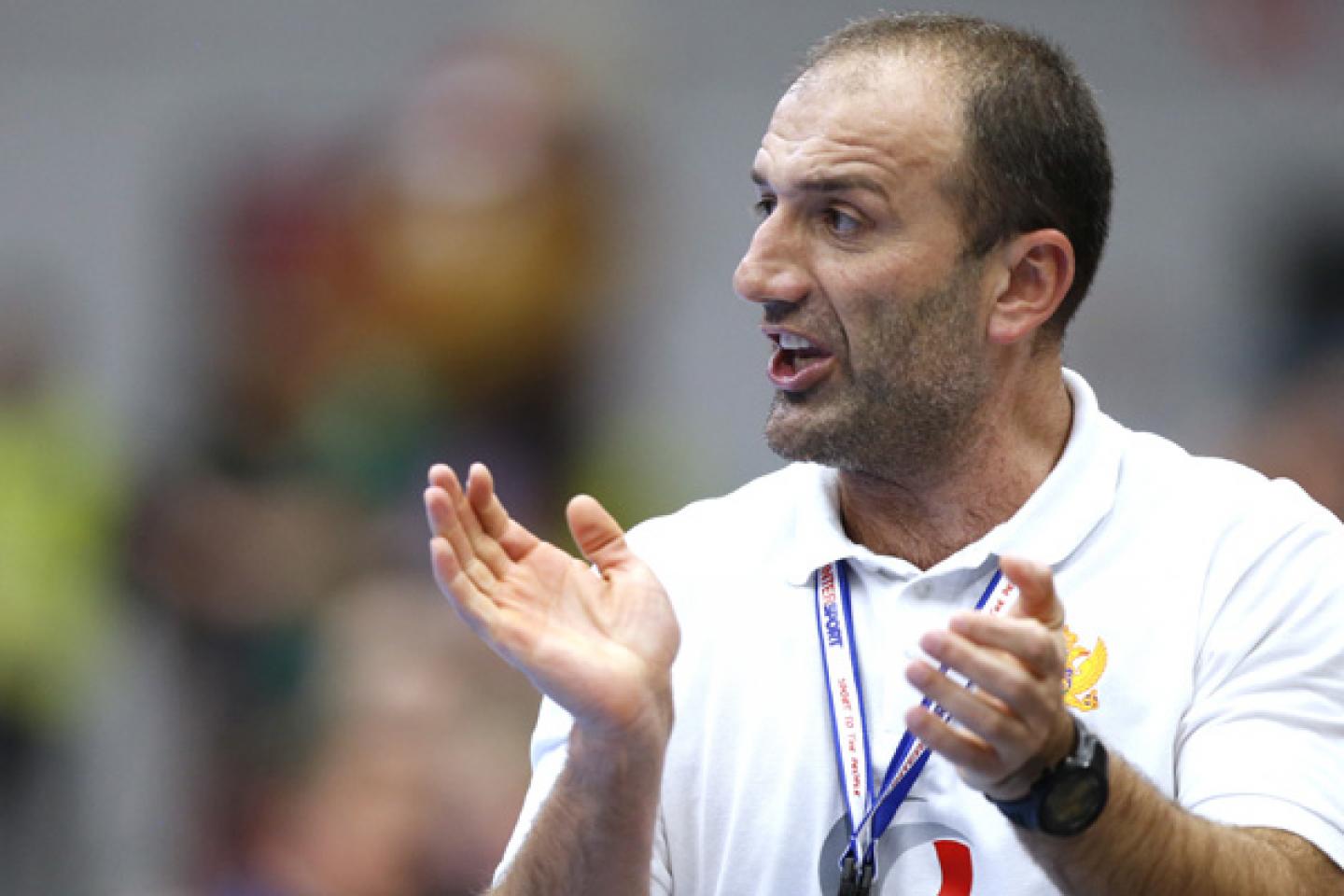The Influence of Positive Coaching at Denmark 2015
19 Dec. 2015

The role of the coach cannot be underestimated, and there were interesting similarities to be observed in the coaching style of all four semi-finalists at 22nd IHF Women’s Handball World Championship, as well as in some of the other notably successful coaches at the championship. Those characteristics are not only to be found in successful handball coaches however, with research and experts in all sports pointing increasingly to certain attributes unrelated to technical knowledge or even the ability to win medals.
“The ideal relationship between the coach and the athletes is based in reliance. The coach has to trust in his athletes and the athletes need to trust in their coach,” says Brazil team psychologist Alessandra Dutra, who also works with the Brazilian Olympic Committee. “Another important point is to respect the roles – the coach is the coach and the athlete is the athlete. The coach plans and the athlete executes the plan. But for this respect-based relationship to work the coach must motivate their athletes and the athlete must also motivate the coach. Both have to interact seeking the same goals.
“The athletes look for faithfulness in the relationship with their coach. They pay a lot of attention to the details. Therefore, it is very important for the coach to develop his capacity of listening to the players.”
Star Montenegro right back Katarina Bulatovic, who works with renowned coach Dragan Adzic both in the national team and at 2015 Women’s EHF Champions League-winning club Buducnost, confirms that a key part of both of those teams’ success has been the equal relationship between the players and the coach.
“When we didn’t have a good relationship [with our coach] we didn’t have results, but we are here because of each other,” says Bulatovic. “We really listen and support each other. He’s really great because he wants hear what we think, he wants to hear our opinions. I think because of that he’s so great. Sometimes you have some coaches who say ‘OK it’s like that’ and they don’t want to hear what we think, but he wants to hear what we think.”
“There needs to be a big understanding between the coach and the players – especially with girls,” says Adzic, who led Montenegro to the 2012 European championship title and a silver medal at the London Olympic games. “When you have a women’s team and you are a male coach you need to completely understand the women’s philosophy and support them. It’s much more complex to work with girls because the attitude how you approach the girls and the men has to be completely different. The approach to the girls needs to be more sophisticated.”
Several athletes and coaches at Denmark 2015 point to self-belief – perhaps even more so with women’s teams – as one of the most important factors in their performance on court at the championship.
“I think that the main reason for how we play right now is because he worked a lot with our minds,” says young back court player Eliza Buceschi, speaking about coach Tomas Ryde, who was appointed head coach of Romania earlier this year. “He’s talking about good things all the time, he really believes in us – and we can see that, we can feel that.”
Adzic says it is vital that players feel they have a supportive relationship with their coach:
“I think all the players on the court need to get the support from the coach and the coach needs to be the one that gives them that confidence.”
Positive reinforcement is visibly an important part of Adzic’s coaching philosophy. The coach can be seen before every match high-fiving all his players as they walk onto the court to warm up, and again before the match starts. Adzic remained calm even when his team were down 14:23 to Denmark in the second half of their first Placement Round match. Montenegro lost the game decisively, but Adzic was smiling as he congratulated each of his players for their effort, afterwards saying that the focus of that match for them was to gain high-level – and positive – match experience for their young players.
Remaining calm on the side line is another aspect of Ryde’s philosophy that Buceschi highlights, which she says helped them defeat Denmark in a tense Quarter-Final match that went into extra time.
“He’s so calm all the time. Also last night when it was drawn he was very, very calm. It’s amazing to look on the bench and see that he’s there, and he can tell you the right thing in the right moment. I really think this is the main reason for why we are working so great together and feeling so good together.”
That positivity is also a visible part of Poland coach Kim Rasmussen’s approach, and his team’s performance is visibly related to the atmosphere created by the native of Denmark.
“He is a good psychologist and coach because he really gives us a lot of energy,” says centre back Kinga Achruk. “In all the team building activities and everything we laugh all the time. This is really important at this championship because we spend a lot of time together; we are women, we have husbands, we have kids, of course it’s normal life that we miss home and everything. But he can make this atmosphere that we feel good together and we don’t think about it.
“I think this is more important than if we have star players. We can have one leader on the court but if we don’t have a good atmosphere on the court and outside the court – this is really important – it will never work, but we feel together like a family. This is I think one of the most important things in our team.”

